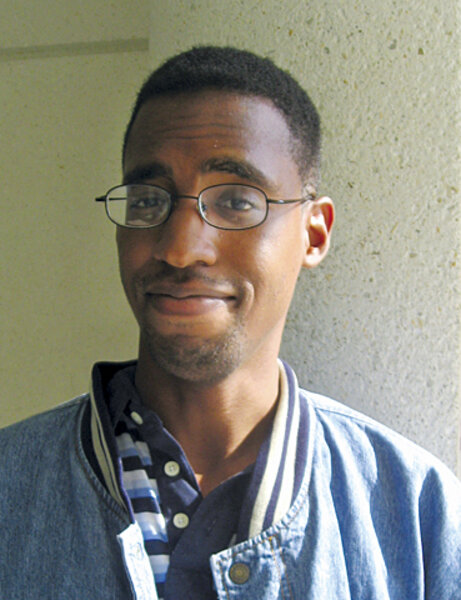Gregory Rose has no doubt that race played a role in Trayvon Martin's death.
"The guy talked to the police before he shot the kid, and they told him to let him go. They said, 'Don't follow him,' " he says. "But he did, and then he acted like it was self-defense.... I don't think he'd have shot him if he was white."
Still, Mr. Rose sees progress in race relations in the US – and even some reason for hope in the reaction to Trayvon's shooting. "Years ago, if something like that happened to a black person, it wouldn't be taken as seriously as now," he says.
Rose's father is from Jamaica and his mother is from Costa Rica. Growing up in Florida, he attended a majority white school and says he often endured racist slurs.
"I'm a Christian; I don't like violence," he says, placing one hand over his heart as if by way of apology. "But one time when a kid called me the n-word I took his head and I slammed it on a desk. I know I shouldn't have. I don't think he ever told the teacher. Years later we started to get along."
Rose says he doesn't think about racism much these days, and believes he has put his school experiences behind him. He has friendships with people of all colors, doesn't feel pressured to change anything about himself to be accepted, and doesn't feel he's being judged on the basis of his color in everyday life.
But when he leaves Coral Springs for the neighboring – and whiter – town of Parkland, he notices that the police there watch and sometimes follow him. "A lot of people are nice. Some say hi when I walk by, but others I'm not so sure about," he says. "I feel like they're wondering what I'm doing there because it's more unusual to see a black face."
– Jacqui Goddard, correspondent








